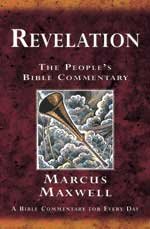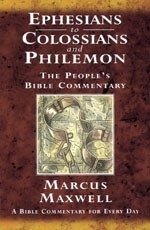There's an interesting article in the Guardian's G2 today. Stuart Jeffries presented a pretty well-balanced summary of the increasingly hostile divide between the religious and secular voices in public debate. (Actually there's an occasionally slight sneering tone, but this is the Guardian mentioning religion, after all; it's nothing like Polly Toynbee's foam at the mouth and bite a vicar approach).
Those voices do seem to have become pretty strident. Religious fundamentalists demonstrate against gay rights and Jerry Springer the Opera, and and seem to be working flat out to divide not only the Anglican Communion, but the CofE itself. On the other side atheist fundamentalists come out of the woodwork to condemn everything from astrology to Roman Catholicism as the same sort of destructive and irrational superstition.
On the one hand modern society is castigated for overuling the laws of God, nature and common decency in the name of tolerance, and on the other believers of all flavours are assumed to be heretic burning bigots who deny modern science in the name of faith.
And to confuse the issue further, there's a third side, of believers and unbelievers alike, who gaze with some bemusement at the fight, wondering where the old-fashioned live and let live tolerance went.
One thing in the article did strike me, though: the use of the term, "faith schools". It's become the accepted way of referring to all schools with some sort of religious foundation. It probably started because someone in Whitehall wanted to coin a term which included all religions, and may well have sprung from the purest of motives. But it has resulted in a term which is about as misleading as you can get.
Once upon a time there were church schools (Church of England, that is) and Catholic schools, with a sprinkling of other denominational schools (a friend went to a Quaker school, for instance). The different labels were important, because they allowed a recognition of the different styles of schools under consideration.
If you went to a church school, you probably (but by no means certainly) sang hymns and had Bible stories in assemblies. Otherwise, it was a pretty ordinary sort of school. Of course, there were varieties of church schools. A very small number were private, fee-paying ones. A larger number were "aided" schools, which had their own admissions policies (in most cases weighted towards church-goers) and a large input from church governors. Most were "controlled" - essentially the same as state schools, but with a small input from church governors. The emphasis of all these would be secular education in a "Christian ethos" (which seems to mean being nice to each other, just as in any school).
If you went to a Catholic school you would expect much more doctrinal teaching ("indoctrination" is the term, if you don't approve of religion). But it was what the school was for - to teach catholicism in a setting of wider education.
Of course, you might have gone to a Jewish or Islamic school, which would have its own approach to education and to teaching of faith and lifestyle.
Now, though, you don't. You simply go (or even worse, send your children) to to a faith school.
The new terminlogy has stripped away all the information that the various old style terms provided. It lumps together all schools with any connection to a religious institution. The local church school and the fee-paying fundamentalist Darwin-was-wrong outfit are now regarded under the same umbrella. And with that comes the argument that the government should not provide any funding for things that are so obviously wacky - even though it in fact does not, since normal publicly funded church schools don't teach any such nonsense.
It also removes our sense of history. Faith schools is a new term, and it's easy to present them as a new development. Of course, we know that church schools have been there for a long time. At one time, if you wanted an education and weren't rich, you relied on the church to provide it. Most of the existing church schools were set up to provide teaching (and not primarily religious teaching) to children who couldn't get it anywhere else. The long and respected tradition of church involvement in education disappears with a change in terminology.
And what replaces it is fear. Let's face it, "faith" schools don't sound so friendly as church schools. You knew where you were with the old village school, nestled in the lea of the church. But this sounds like some plot to indoctrinate, to churn out kids who will be intolerant fundamentalists. Not that faith means that in reality, but that is the flavour it can so often have these days. Which strikes me as rather a pity, since what we need nowadays is surely less simple polarisation, and more nuanced understanding.
Monday, 26 February 2007
Subscribe to:
Post Comments (Atom)


No comments:
Post a Comment